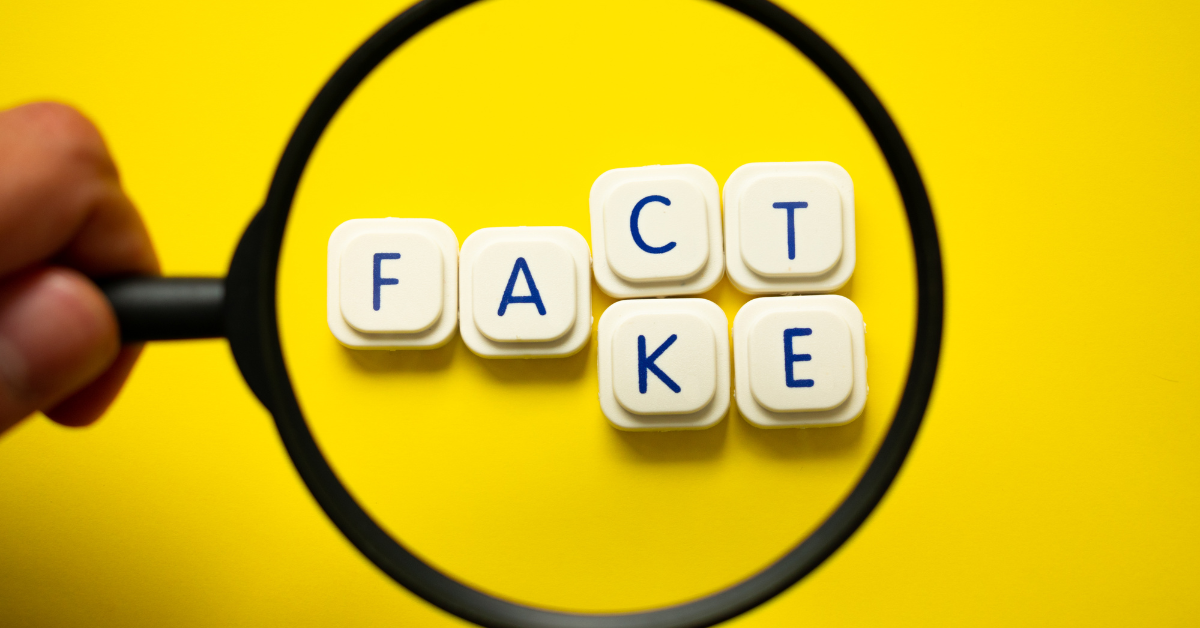Certain beliefs, either based on assumptions that sound logical or perhaps limited experience with that specific circumstance, can sometimes become viewed as absolute fact, when in reality, those beliefs are not true at all.
These misconceptions can sometimes lead to missteps or missed opportunities in how litigation is managed. Learning to separate fact from fiction about common litigation myths can help improve decision-making during each stage of the litigation process.
What are some common litigation myths defense attorneys may believe?
Three common myths defense attorneys may believe are: that juror anger is to blame for nuclear verdicts, that experienced deponents are automatically good witnesses who don’t need additional preparation, and that witnesses should try to get their story out during their deposition. None of these beliefs are correct.
Myth #1: Juror Anger is the Cause of Nuclear Verdicts
It’s easy to blame nuclear verdicts on angry jurors and anti-corporate sentiment, but it’s not that simple. While anger may play a role in some nuclear verdicts, it is not the main force behind them. Our research indicates that anger explains only about 11% of the variation in these outcomes. This points to other, more influential factors – such as jurors’ feelings of empowerment, sense of responsibility, and underlying beliefs and values – as key drivers of these large awards. In short, anger is a contributing element in certain cases, but it is far from the dominant influence.
The widely held belief that juror anger is the primary driver behind nuclear verdicts is an oversimplification not supported by empirical research. Anger – particularly state anger experienced during trial – does influence outcomes to some extent. However, the bulk of what drives these outsized verdicts stem from deeper psychological and social factors, such as jurors’ sense of empowerment, motivation to protect the community, pre-existing beliefs and values, case presentation, and the influence of dominant juror personalities.
Overemphasizing anger can lead attorneys and claims professionals to adopt narrow, ineffective strategies. Instead, a more balanced approach that accounts for the full range of juror motivations and includes continued research into jury psychology is essential for understanding and mitigating nuclear verdicts. And, although some jurors may enter the courtroom with a bias toward corporations, a sophisticated voir dire questioning strategy can identify jurors with biases that won’t change. The remaining others can be persuaded with research-tested arguments and via prepared, credible witnesses who communicate clearly and take accountability where appropriate.
Myth #2: The Most Experienced Person Should Be Your 30(b)(6) Rep
Experience is valuable, but in a courtroom, effective communication trumps tenure. A 30-year company veteran with deep knowledge but poor communication skills can easily tank a case.
Sometimes, a less experienced employee trained to deliver clear, composed testimony is a far better option. The lesson? Don’t simply default to resume weight; there are better ways to identify the best corporate representatives. Prioritize witness performance under pressure and take the time to assess and evaluate corporate representative candidates. Then, train and prepare your best communicators; this is where litigation consultants add measurable value.
Cognitive, behavioral, and emotional training goes beyond content coaching. It’s about helping witnesses recognize psychological tricks by opposing counsel and triggers that could lead to fight or flight responses. Sophisticated neurocognitive training allows witnesses to communicate with clarity and credibility under pressure. Litigation psychology experts use cognitive remapping to transform even reluctant or nervous witnesses into confident communicators. In high-stakes cases, this kind of support is a competitive advantage.
Myth #3: A Witness with Experience Testifying in Multiple Depositions Is Always a Strong Witness
Repeated exposure to testifying at deposition doesn’t build witness competence; in fact, it can actually reinforce bad habits. Overconfident witnesses, especially those who think they’ve “done this before,” are often more vulnerable to traps or present poorly under pressure.
A bad corporate rep deposition is forever. Once damaging testimony is captured, there’s no undoing it. And yet, many legal teams assume that attorney-led prep is enough.
It’s not.
Attorneys often spend prep time with witnesses focusing on case facts and legal positioning, all of which is necessary, but overlook behavioral conditioning, communication dynamics, and psychological readiness. Witnesses need structured training that helps them manage stress and avoid reactive, emotional behaviors to present as composed, credible, and trustworthy, especially on camera. True readiness requires more than a legal briefing. It requires sophisticated training combined with practice, repetition, and behavioral feedback that trained consultants are equipped to deliver.
Myth #4: You Can Win the Case at Deposition
Defense witnesses never win a case in deposition, but they can absolutely lose it. Overzealous testimony, ego, or attempts to “win the deposition” by trying to “tell our side of the story” often backfire and open doors to later risks.
Pivoting or attempting to over-explain at deposition only prolongs the questioning and provides more ammunition and topics for opposing counsel to ask your witness about. No amount of explaining by the witness is going to convince your adversary to drop the case. A better strategy for witnesses is to stay composed, stay in their lane, and for attorneys not to let the witness treat a deposition like a closing argument.
Myth #5: It’s Okay to Wait Until the Week Before Trial to Start Witness Prep
Fictional and dangerous. Witness prep should be thought of as a process, not a one-time event. Waiting until the week before trial is a tactical error that can lead to rushed sessions, lack of preparation, missed red flags, and trial disasters.
A staged approach is best, starting six weeks or more out. That gives time for attorneys and consultants to adequately prepare the witness for the unique structure of trial testimony, to address witness concerns or emotional issues, and to shape messaging and delivery. The week before trial is already chaotic, and compressing witness prep into that timeframe only amplifies that chaos.
Myth #6: Plaintiff Firms Aren’t Spending More on Jury Research Than We Are
The fact is that plaintiff attorneys aren’t just using big-budget mock trials – they’re running low-cost, high-impact focus group research early and often. Online focus groups, informal panels, and repeated theme testing give them a strategic edge in shaping narratives and identifying emotional hooks.
Defense teams often lag behind. But there are cost-effective ways to conduct jury research and gather actionable insights. Waiting until trial prep – or skipping jury research altogether – is a major competitive disadvantage.
Collaboration with litigation consultants increases the likelihood of success. A team effort is required to conduct thorough research and build a strong case that improves the odds of a successful outcome.
Myth #7: Former Employees Always Make Bad Witnesses
Former employees, especially those who were fired or left on bad terms, are often seen as unpredictable or even hostile. And yes, they can present significant risks if neglected. But labeling them as inherently bad witnesses is a shortcut to strategic failure.
The real issue is a lack of buy-in, not their employment status. A former employee may initially feel disengaged or even resentful, but that doesn’t mean they’ll derail the case. The key is reframing their role: help them understand that their credibility is on the line, and that their performance affects their own reputation, not just the company’s.
Building human connection and trust is an important step. This means getting off email and out of the office. That might look like visiting witnesses at home, grabbing lunch, or simply taking the time to listen and meet them where they are. These witnesses are far more likely to engage meaningfully if they feel seen and respected, rather than handled. The takeaway? It’s not who they are, it’s how they’re approached.
Myth #8: Focus Groups Are the Same as Mock Trials
Which research methodology to use, focus group or mock trial, depends on the objective. Focus groups are valuable early in a case for issue spotting, narrative testing, or gauging emotional reactions. Focus groups are exploratory in structure and intended to educate jurors and evaluate their feedback and reactions. Focus groups are also a valuable tool to test voir dire questions and opening statements.
For trial prep, mock trials are superior to focus groups because mock trials are confirmatory in nature. Mock trials are used to collect predictive data and to test evidence, themes, and witnesses to understand how key elements of the strategic plan will play out at trial. Mock trials are about persuasion. Focus groups and mock trials each have their place in managing litigation and should be used for their appropriate purpose.
Increase Confidence in Your Litigation Strategy with Courtroom Sciences
The complexity of litigation requires a methodical approach to maximize the odds of a positive outcome. Understanding and identifying key strengths and weaknesses in your case early, training witnesses to perform well at deposition, and executing jury research based on the specific goals and stage of the litigation are all critical to delivering successful outcomes in your case.
Courtroom Sciences helps attorneys efficiently navigate litigation by providing psychological expertise, science-backed data, and expert support for all phases of litigation. Learn how CSI’s litigation consulting experts can improve outcomes for your next case. Speak with one of our experts to get started.
Be confident in achieving superior litigation outcomes. CSI has the expertise, track record, and capabilities to help you win.



